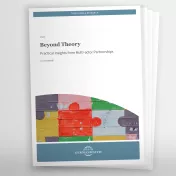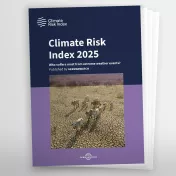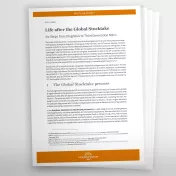
Is the European Carbon Border Adjustment Mechanism a trade barrier that burdens the economies of the countries concerned? Or can it be a driving force for sustainable energy and industrial transformation, benefiting both trading partners and the climate alike?
The European Carbon Border Adjustment Mechanism (CBAM) is intended to ensure that European industrial companies remain competitive as carbon prices rise, and that industrial production does not relocate to countries with lower environmental standards. This ‘climate tariff’ will particularly affect countries that export large quantities of the goods in question to the EU—that is, iron and steel, cement, electricity, hydrogen, aluminium, or fertilisers.
Our discussion paper analyses the impact of the Carbon Border Adjustment Mechanism on Ukraine and the Western Balkans and identifies how these countries can use the CBAM to accelerate their energy transition and industrial transformation. Amongst other things, the discussion paper highlights the introduction or strengthening of carbon pricing instruments as an important policy option. These instruments would not only promote a climate-friendly modernisation of the economy, but would also reduce or eliminate the CBAM fee.




